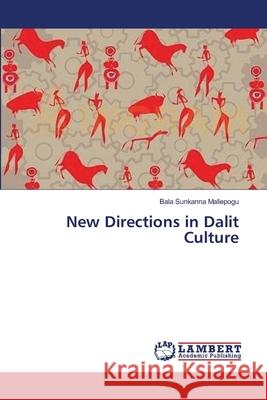New Directions in Dalit Culture » książka
New Directions in Dalit Culture
ISBN-13: 9783659393150 / Angielski / Miękka / 2013 / 84 str.
There can be no people without a culture. Every group of people respect and feel proud of their own culture. There are strong cultural differences between any two groups in the world, that means those groups are not only distinctly different, but have come from different geographical places. Hence, they are different in racial, religious, ritualistic, social and cultural backgrounds. But, the two groups existing in the same place or adjacent areas for long times of history, and in spite of their co-existence for long time, if the two groups have distinctly different cultures, unacceptable to each-other, then there is some thing wrong. Dalits and "upper" caste Hindus in India are two such groups living in the same places all over the country for nearly three thousand years, still they are different, looking completely in different directions in many respects and cannot digest or accept the presence of each other. The book discusses the Dalits' assertion and their new cultural identity, in order to defy the hegemony of the "upper" caste Hindus. In the process the Dalits are in the middle stage between what they were in the past and what they intend to be in the near future.
There can be no people without a culture. Every group of people respect and feel proud of their own culture. There are strong cultural differences between any two groups in the world, that means those groups are not only distinctly different, but have come from different geographical places. Hence, they are different in racial, religious, ritualistic, social and cultural backgrounds. But, the two groups existing in the same place or adjacent areas for long times of history, and in spite of their co-existence for long time, if the two groups have distinctly different cultures, unacceptable to each-other, then there is some thing wrong. Dalits and "upper" caste Hindus in India are two such groups living in the same places all over the country for nearly three thousand years, still they are different, looking completely in different directions in many respects and cannot digest or accept the presence of each other. The book discusses the Dalits assertion and their new cultural identity, in order to defy the hegemony of the "upper" caste Hindus. In the process the Dalits are in the middle stage between what they were in the past and what they intend to be in the near future.











